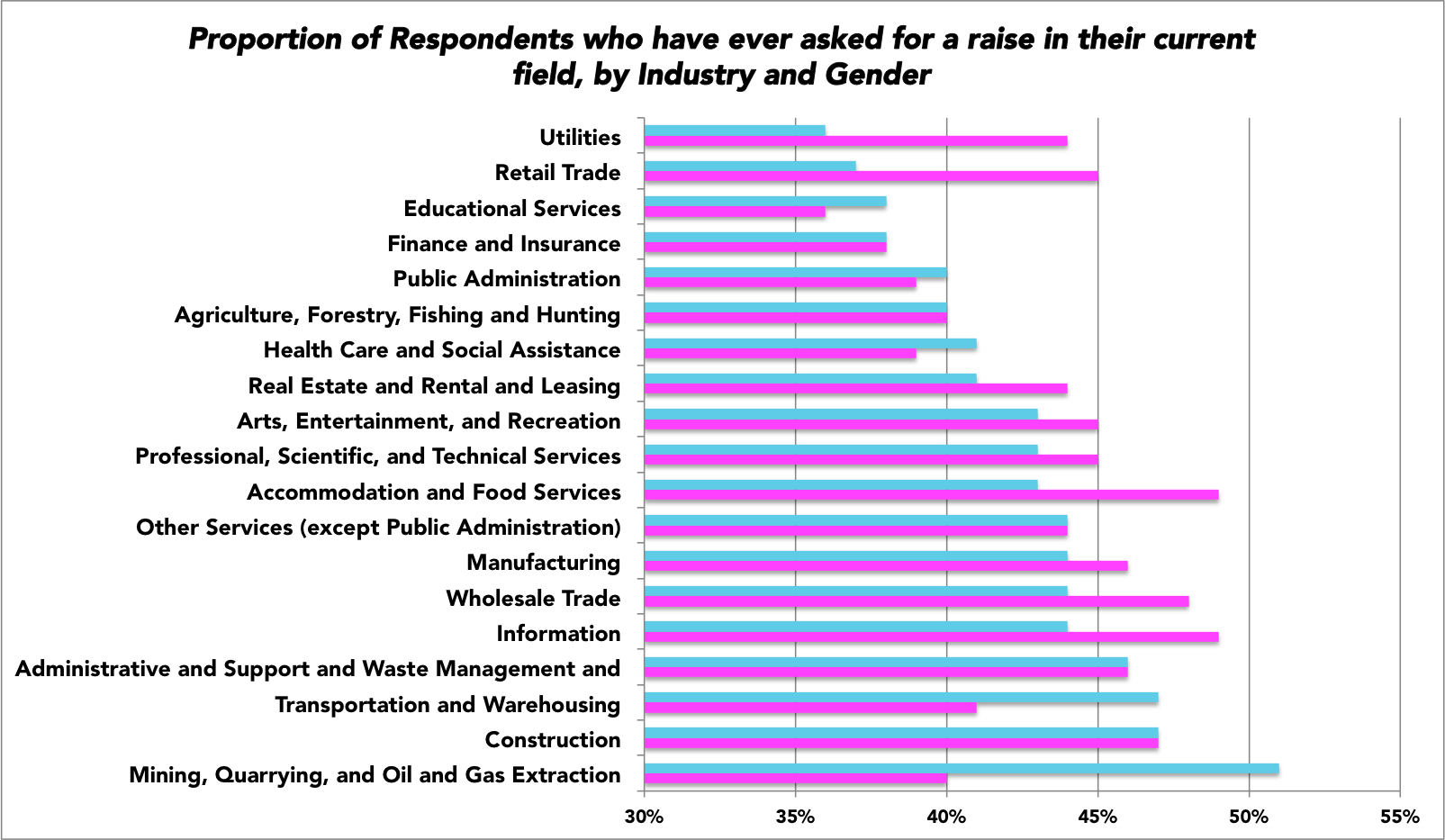It's a case of ask and you shall receive when it comes to pay rises. Well, unless you're a female in the transport industry, you're below medium wage already, or you live in West Virginia, Kansas, Indiana, Nebraska, or Arkansas.
In October and November, Payscale polled 31,000 people in the PayScale Salary Survey to find out if they had ever negotiated their salary, how successful they were in that request, and if they hadn't, what was holding them back. Late last night AEST they released their Salary Negotiation Guide, and in conjunction they have released some of the results of that survey. I'm not entirely sure how we managed to be in the hallowed company of the Wall Street Journal, but we were lucky enough to get some detailed data under press embargo a few days ago, and there are some interesting findings in the data which we can now share here.
- There's a marked geographic difference amongst those who reported having requested a pay rise. Per state, these ranged from less than 35% having ever requested a pay rise in their current field (South Dakota at 31%, and Arkansas at 34%) to more than 50% having ever requested a pay rise in their current field (Alaska at 53%, and Rhode Island at 51%).
- Workers with high job meaning were slightly less likely to ask for a pay rise, but more likely to get the full pay rise if they did ask for one.
- Workers with high job satisfaction were far less likely to ask for a pay rise, and far more likely to get the full pay rise they'd requested, if they did ask for one.
- Workers with high job stress were more likely to ask for a pay rise, and less likely to receive the full pay rise that they asked for if they did ask for one.
- Of the three points above, there's always the risk of the correlation trap - are workers more stressed, less satisfied, and lacking meaning because when they ask for a pay rise, they aren't granted one? It's impossible to tell from the study, though the relationships are interesting.
- Only 43% of all respondents had ever asked for a raise in their current field. For the 57% who had never asked for a raise, their main reasons were:
- My employer gave me a raise before I needed to ask for one (38 percent)
- I'm uncomfortable negotiating salary (28 percent)
- I didn't want to be perceived as pushy (19 percent)
- The primary question asked in the survey was whether respondents had ever asked for a pay rise in their current field. From an interpretation perspective, this is of some use - but it would be interesting to have asked a time-framed question - such as "have you asked for a pay rise in your current field in the past 12 months". It stands to reason that the more senior you are in a field, the longer (in aggregate) you have been working in that field - and so although there is a clear pattern towards more senior, and higher salaried people, being more likely to have ever asked for a pay rise in their current field, that might be just a function of the amount of time they've spent in that field. Likewise with Generations - I'm always cynical about the fairly arbitrary grouping of any group of people by generation, but in this case we're not sure if we're measuring Gen Y's lack of willingness to ask for a pay rise, or the fact that Boomers have been in the workforce much longer.
- Women are more likely than men to state that they are uncomfortable negotiating salary – 31 percent vs. 23 percent – and that holds true even among C-level executives, where 26 percent of female Chief Executives said they’re uncomfortable negotiating compared to 14 percent of male Chief Executives.
- The gender gap in both willingness to ask for a raise, and likelihood to get the full amount requested, differed by industry.
- Females were more likely to ask for a raise than males in male-dominated industries - Construction (51% vs 40%) and Transport and Warehousing (47% vs 41%). In Construction, they were also more likely to get the full raise requested (54% vs 47%), but this was definitely not the case in Transport and Warehousing, where only 35% of Females got the raise they'd requested against 63% for males.
- In West Virginia, Kansas, Indiana, Nebraska, and Arkansas, you are least likely to get a raise - either because you asked, or through your employer granting you one before you even asked.
If you anticipate being on either side of a salary negotiation in the coming few months, I'd encourage you to take a look at the Salary Negotiation Guide.





